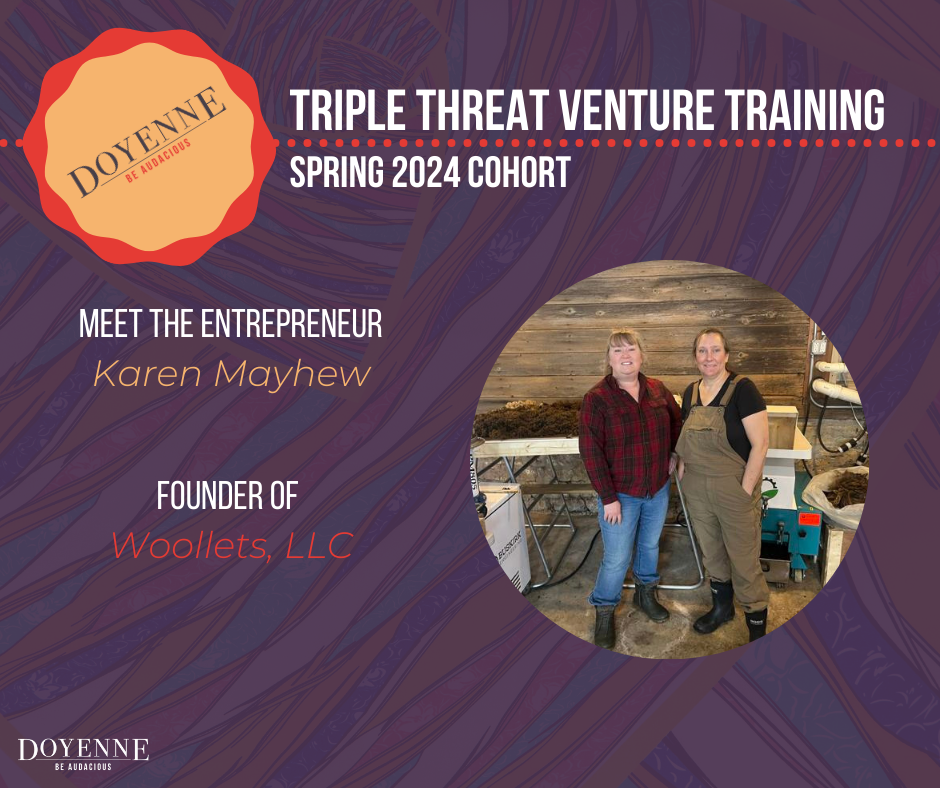
Q&A with Entrepreneur Couples
From Life Partners to Business Partners
It’s a unique situation when two people aren’t just life partners, but business partners as well. Entrepreneur couples Luke and Caroline Burkey, Alex and Noel Miranda, and Matt and Susie Younkle, have discovered strategies to navigate this type of business environment and shared some of their insights with us. These couples will be featured on a panel at the Madison Forward Fest taking place August 19th - 23rd.
What are your Top 3 questions every couple should discuss before starting a business together or with others/solo?
Luke and Caroline Burkey:
1. Is this business and its mission aligned with our values and goals as a family?
2. How much time and financial resources can one or both of us comfortably put towards the venture without jeopardizing other goals we both agree are important (i.e. saving for children's education, basic expenses, etc.)?
3.What is our exit strategy: at what points would we decide to shut down or sell the business?
Alex and Noel Miranda:
1. Is it a good idea to work together? Owning a business together is not for every couple and can add a lot of stress to a marriage even destroy relationships—it’s risky. So invest in the time to ask if it’s a good idea to work together. What are the dangers if it doesn’t work out. Is there a plan b, c, and d? How far are we willing to go to make this work? At what point do we stop?
2. What are your shared values? Have they been defined? It’s important to communicate and understand what each partner values. Identify which values are missing or not aligning and why. Some values may never be fully aligned or fully realized and that’s okay but as a couple can we be willing to lay out our shared values together and for the ones that are not aligned can we meet in the middle or compromise?
3. Have we defined clear boundaries together? How does one know if this venture isn’t working? What’s more important to us is that we are able to move together whether we succeed or fail. For us the business is secondary to our love for each other and our family, so we have a shared value and a strong boundary that we are willing to sacrifice our business in order to preserve our family if it ever comes to it. That’s a clear line we don’t cross. Ultimately, the business must serve our family and our marriage and not the other way around. It’s important to keep one’s identity separate from the business. We are more than our business.
Matt and Susie Younkle:
(1) Money: What are the anticipated stresses and risks (and opportunities) for our household finances?
(2) People: What’s the nature of the relationship with any other co-founders?
(3) Goals: Why do we want to start this business and what are our long-term goals?
How do you separate work relationship from personal relationship?
Luke and Caroline:
As a couple, we generally live a "blended" life: work and life are mixed, and those conversations mix at all times during the day and week. However, we intentionally leave work and career topics to the side when we're on date nights together or taking vacation so that we can reconnect and rest in healthy ways. We try not to be completely dogmatic about this rule however; there are times when we both feel that we have to talk about the business first in order to focus on other conversations. In these situations, as long as we are both okay with discussing the business, we will do so, but we always time box the conversations so that it doesn't become our only topic of discussion.
Alex and Noel:
This is an area we are still working on and growing together in. We would say that therapy has helped us a lot—we each have our own therapist we meet with. Having view points outside of our own is very important and helps bring perspective whether it’s from our therapist, life coach, or mentors, we have a team of people outside our business that support us mentally, spiritually, emotionally, and corporately. It’s important to find ways to shut off, take breaks, and not talk about work all the time. Checking in with each other personally and not just professionally. We’ve also learned that we need to find ways to take time off without any business objectives involved—let go of business write offs, just take time and invest in each other without there needing to be an incentive. Having children has changed the way we view business and made the separation between work and family much easier and clearer.
Matt and Susie:
Our work and personal lives have been intertwined for so many years and that works fine for us, though we realize other couples might need more separation. We do have a few strategies that help us focus. We have a weekly Younkle business meeting with an agenda consisting of items that we’ve added to a shared google doc – with sections for work business and personal business – and a review our calendars for the next week or two. We also tend to discuss work only when we’re both actively working or in a work mindset; we try not to randomly chat about work topics all the time. And while we love spending lots of time together, we both have separate activities/travel/volunteering that we enjoy in our free time.
How do you leave the stresses of work at work so you can show up at home as the best version of yourself for your partner?
Luke and Caroline:
To say work stays at work for us both would be a a generous statement. We minimize its disruption by reconnecting in the evenings and starting our after work hours by going on long walks or playing sports (pickleball, biking, basketball, etc.) with our kids. We do this most evenings. Staying active really helps keep stress at bay for both of us, especially when it is done as a family unit.
Alex and Noel:
For us, it’s about each partner being free to be their authentic self and not being afraid of our emotions or being perfect; it’s embracing our messy side but still knowing that we love each other. It’s also about how we integrate the different parts of ourselves in a way that works, it may look different every day, and it’s challenging and it’s not about getting it right, it’s about improving—improving our communication, improving our understanding, and our transparency, improving the way we show up. Alex says, “There’s always room for improvement, it’s the biggest room in the house”. It’s also about creating clear boundaries with our work hours and availability. It’s being honest with clients and setting clear expectations of when we’re available for work. We may not answer calls or emails right away or at certain times—if clients cannot respect that, we know we’re not the right fit and that’s okay.

